When it comes to feeding a Bullmastiff, it’s crucial to remember that this large breed has specific nutritional needs that must be met to maintain their health and vitality. The amount of food a Bullmastiff requires can vary significantly based on their age, weight, metabolism, and activity level, as well as the caloric content of their food. We’ll explore these factors in detail to give you a comprehensive guide on feeding your gentle giant.
1. Understanding Bullmastiff Nutritional Needs
Bullmastiffs are not just big dogs; they have a unique physiology that requires careful attention to nutrition. A diet that’s rich in protein is essential for maintaining their muscle mass, while the right balance of fats provides them with the energy they need. Carbohydrates are also important, but they should come from high-quality, digestible sources like whole grains and vegetables to prevent unnecessary weight gain.
2. Determining the Right Amount
The right amount of food for a Bullmastiff will vary. A general guideline is to start with the recommendations provided by the dog food manufacturer, which are based on weight. For a typical adult Bullmastiff weighing between 100-130 pounds, this might be anywhere from 3 to 5 cups of high-quality dry dog food per day, split between two meals. Remember to adjust the portions based on the dog’s individual needs and the caloric density of the food.
3. Puppy Portions
Bullmastiff puppies have different dietary requirements than adults. They grow rapidly and need more calories and nutrients per pound of body weight. Puppies up to six months old may need twice the amount of food as an adult dog. As a rough estimate, a Bullmastiff puppy might start with 1-2 cups of food three times a day, gradually increasing as they grow.
4. Adult and Senior Feeding
Once a Bullmastiff reaches adulthood, their caloric needs may decrease. At this stage, maintaining a healthy weight is crucial to prevent joint issues and other health problems. Seniors, in particular, are less active and require fewer calories. It’s essential to monitor their weight and adjust their food intake accordingly to prevent obesity.
5. Adjusting for Activity Levels
The activity level of your Bullmastiff will greatly influence how much food they should consume. A highly active dog will require more calories than a couch potato. If your Bullmastiff accompanies you on hikes or engages in other vigorous activities, they might need up to 40% more food than what’s recommended for their weight.
6. Special Dietary Considerations
Some Bullmastiffs may have specific health issues that require dietary adjustments. For instance, dogs with a tendency to bloat need smaller, more frequent meals. Those with food sensitivities might require a limited ingredient diet. Always consult your vet before making significant changes to your dog’s diet.
7. The Cost of Feeding a Bullmastiff
The cost of feeding a Bullmastiff can vary widely based on the type of food you choose. Premium foods are more expensive but often require you to feed less due to their higher caloric content and better nutrient absorption. As a rough estimate, feeding a Bullmastiff might cost between $60 to $120 per month, depending on the quality of the dog food and the individual dog’s needs.
8. Tips for Feeding Your Bullmastiff
To ensure your Bullmastiff stays healthy, always provide fresh water, stick to a feeding schedule, and avoid giving too many treats or human food, which can lead to weight gain. Use feeding time to reinforce good behavior and bond with your pet.
Our 5 Top Foods for Bullmastiffs
The diets were selected by our founder Justin Palmer, a certified canine nutrition expert, specifically with Bullmastiffs in mind:
| Food | Pros | Cons |
|---|---|---|
|
|
|
|
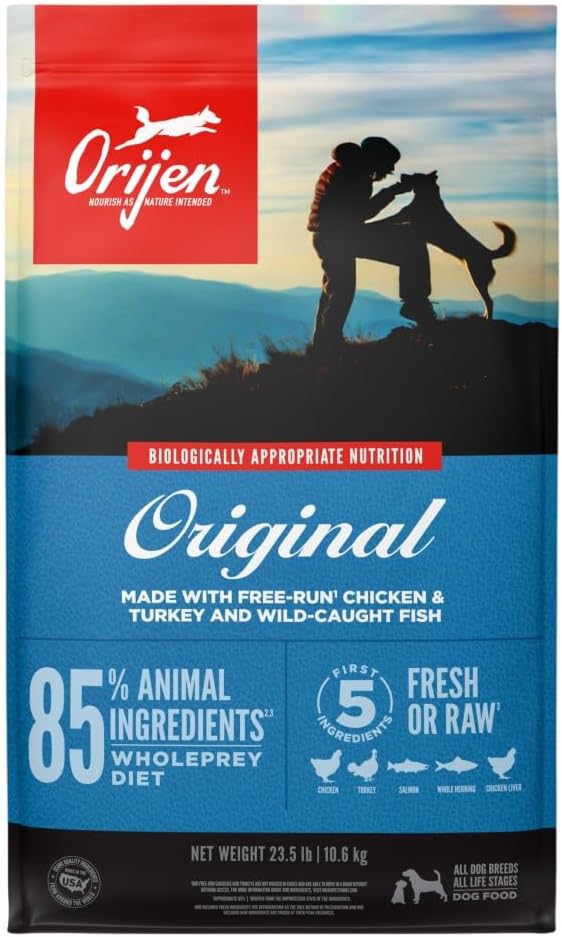
Check Today's Price on: |
|
|
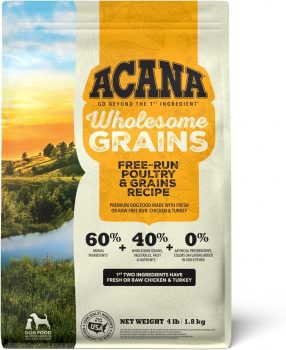
Check Today's Price on: |
|
|
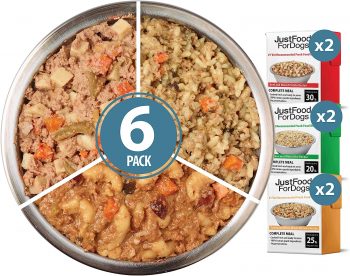
Check Today's Price on: |
|
|
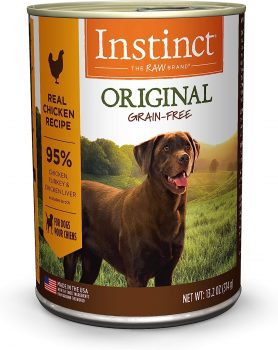
Check Today's Price on: |
|
|
Conclusion
Feeding your Bullmastiff the right amount of food is a balancing act that requires attention to their individual needs and the quality of their diet. By understanding these needs and making informed choices about their food, you can help your Bullmastiff live a long, healthy, and happy life. Always consult with a veterinarian to tailor the feeding regime to your dog’s specific needs, and remember that a well-fed Bullmastiff is a content and thriving companion.
Frequently Asked Questions About Feeding a Bullmastiff
1. How many times a day should I feed my Bullmastiff?
You should typically feed an adult Bullmastiff twice a day. Puppies under six months may need to eat three times a day to accommodate their rapid growth phase. Consistency in feeding times helps maintain their digestion and energy levels.
2. Can I feed my Bullmastiff a raw diet?
Yes, you can feed your Bullmastiff a raw diet, but it must be well-balanced and designed to meet their nutritional needs. Consult with a vet or a canine nutritionist to ensure the diet includes the right amounts of protein, fat, and essential nutrients.
3. Is it okay to feed my Bullmastiff table scraps?
Feeding your Bullmastiff table scraps is not recommended. Many human foods are unhealthy for dogs and can lead to obesity and other health issues. It’s best to stick to a diet formulated for large breeds like the Bullmastiff.
4. How do I know if I’m feeding my Bullmastiff enough?
Monitor your Bullmastiff’s weight and energy levels to see if you’re feeding them enough. A well-fed Bullmastiff should have a visible waist and you should be able to feel, but not see, their ribs. Consult your veterinarian if you’re unsure.
5. What type of food is best for Bullmastiffs?
The best food for Bullmastiffs is high-quality, commercially available dog food that’s formulated for large breeds with the right balance of protein, fat, and carbohydrates. Always look for food that meets the AAFCO nutrient profile guidelines.
6. How much water should my Bullmastiff drink?
A Bullmastiff should always have access to fresh, clean water. They typically need about an ounce of water per pound of body weight per day, but this can increase with exercise and heat.
7. Are there foods I should avoid giving my Bullmastiff?
Yes, avoid foods like chocolate, grapes, raisins, onions, garlic, and xylitol, as these are toxic to dogs. Also, steer clear of excessively fatty foods and bones that can splinter and cause choking or blockages.
8. How can I prevent my Bullmastiff from becoming overweight?
Prevent your Bullmastiff from becoming overweight by measuring their food, limiting treats, and ensuring they get regular exercise. Adjust their food intake if you notice weight gain, and have regular check-ups with the vet.
9. Do Bullmastiffs have special nutritional needs?
Bullmastiffs need a diet that supports joint health due to their large size and can benefit from added supplements like glucosamine. They also need plenty of proteins to maintain muscle mass and moderate fat for energy.
10. What should I do if my Bullmastiff is a picky eater?
If your Bullmastiff is a picky eater, try adding a little wet food to their kibble, or switch to a different flavor or brand. Ensure the food is fresh and at room temperature. If pickiness persists, consult your veterinarian to rule out underlying health issues.
 Check Today's Price on:
Check Today's Price on: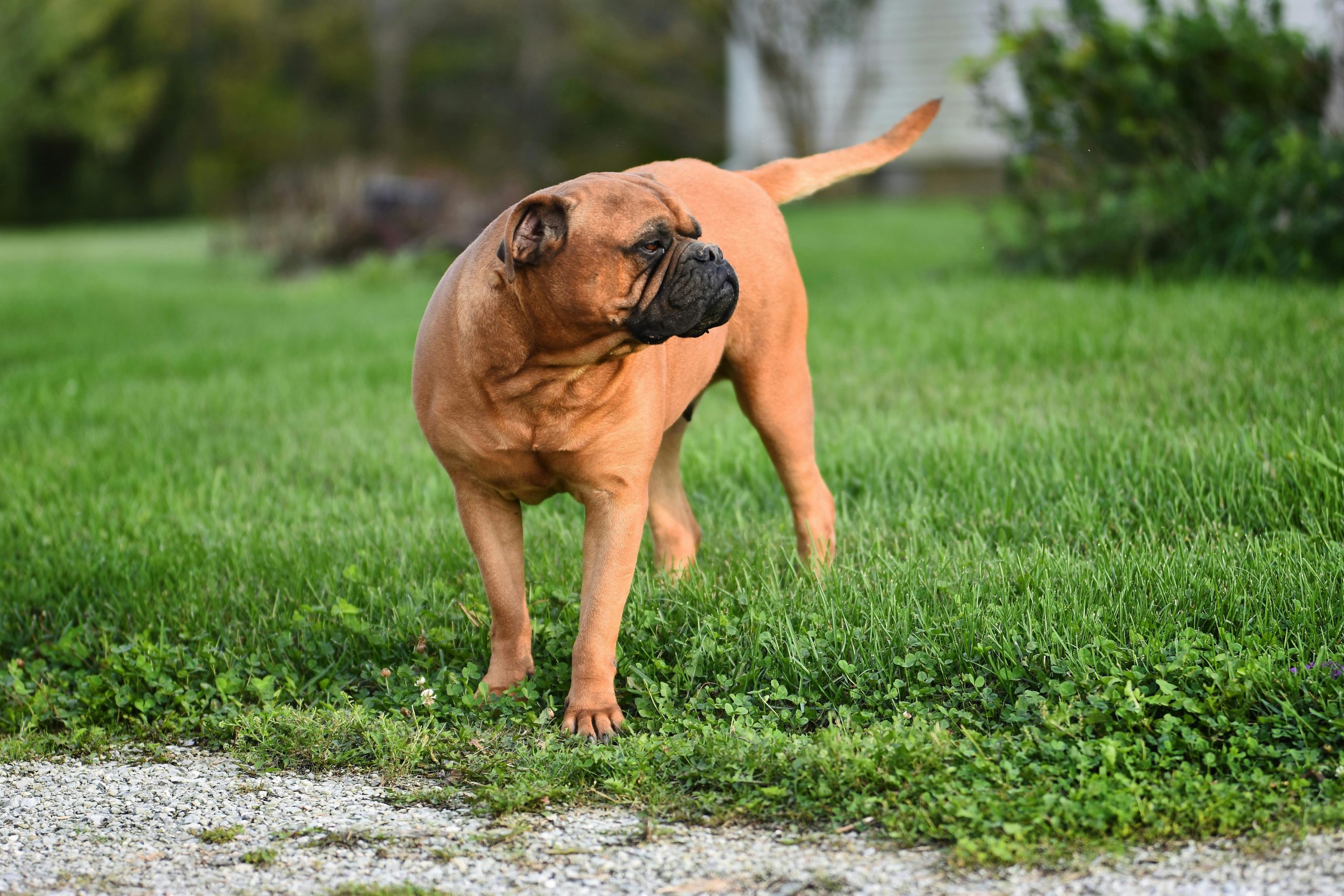
 Toledo, United States.
Toledo, United States.